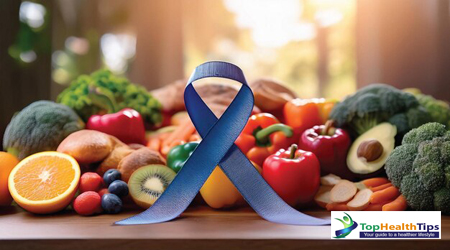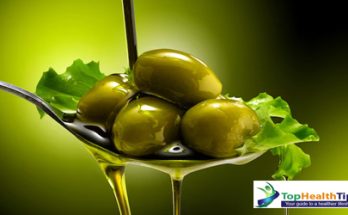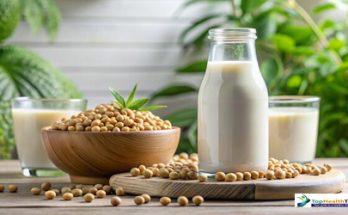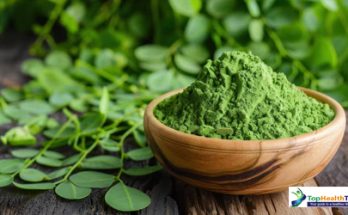Cancer is a complex disease, influenced by a combination of genetics, environment, and lifestyle choices. Among these factors, the food we eat plays a significant role in either reducing or increasing the risk of developing cancer. In this article, we’ll explore how certain foods are linked to cancer risk and provide guidance on how to make healthier choices that may lower the risk.
What is Cancer?
Cancer occurs when cells in the body grow uncontrollably, forming tumors or spreading to other parts of the body. While some cancers are linked to genetic factors, many are influenced by lifestyle choices, including diet. Understanding how the food we eat affects cancer development can empower us to make healthier decisions.
How Food Influences Cancer Risk
1. Carcinogens in Food
Some foods contain carcinogens—substances that can cause cancer. These can either form naturally in the food or develop during processing or cooking.
- Processed meats like bacon, sausage, and ham contain chemicals such as nitrates and nitrites, which can convert into cancer-causing compounds when heated.
- Grilled or charred meat can form heterocyclic amines (HCAs) and polycyclic aromatic hydrocarbons (PAHs), both of which are carcinogenic.
- Aflatoxins, found in moldy peanuts and grains, are known to increase liver cancer risk.
2. Obesity and Cancer
Being overweight or obese increases the risk of several types of cancer, including breast, colon, and pancreatic cancers. A high-calorie diet, especially one rich in sugary drinks and processed foods, can lead to weight gain and, consequently, increased cancer risk.
3. Antioxidants and Cancer Prevention
Many plant-based foods contain antioxidants, which help neutralize free radicals—unstable molecules that can damage cells and lead to cancer.
- Fruits and vegetables, especially those high in vitamin C, vitamin E, and beta-carotene, can reduce cancer risk.
- Cruciferous vegetables like broccoli, cabbage, and kale contain sulforaphane, which has been shown to block the growth of cancer cells.
4. Fiber’s Protective Role
Dietary fiber found in whole grains, fruits, and vegetables can reduce the risk of colorectal cancer. Fiber helps move food through the digestive system, preventing the buildup of harmful substances that may lead to cancer.
5. Alcohol and Cancer
Drinking alcohol is linked to an increased risk of several types of cancer, including mouth, liver, breast, and esophageal cancers. The risk increases with the amount of alcohol consumed. Even moderate drinking has been associated with a higher risk of breast cancer in women.

Foods That May Increase Cancer Risk
Some foods have been consistently linked to a higher risk of cancer. It’s important to be aware of these and limit their consumption.
- Processed meats (bacon, sausage, hot dogs)
- Red meat (beef, pork, lamb)
- Sugary drinks (sodas, sweetened beverages)
- Highly processed snacks (chips, cookies, fast food)
Foods That May Help Lower Cancer Risk
Eating a diet rich in whole, minimally processed foods can help protect against cancer. Here are some of the best choices:
- Fruits and vegetables: Packed with antioxidants, fiber, and vitamins.
- Whole grains: Brown rice, oats, and whole wheat reduce colorectal cancer risk.
- Legumes: Beans and lentils offer high fiber and beneficial plant compounds.
- Fatty fish: Salmon, mackerel, and sardines contain omega-3 fatty acids, which may reduce inflammation and lower cancer risk.
Practical Tips for a Cancer-Preventive Diet
Adopting a healthier diet doesn’t have to be difficult. Here are some simple, practical steps you can take:
1. Eat More Plants
Aim to fill half your plate with fruits and vegetables at every meal. Not only are they rich in nutrients, but they’re also low in calories, which can help with weight management.
2. Choose Whole Grains Over Refined
Swap out refined grains like white bread and pasta for whole grains like quinoa, brown rice, and whole wheat.
3. Limit Processed and Red Meats
Reduce your intake of bacon, hot dogs, and red meat. Instead, opt for plant-based proteins like beans, lentils, or tofu.
4. Drink Water Instead of Sugary Beverages
Sugary drinks contribute to weight gain, which can increase cancer risk. Choose water, herbal teas, or unsweetened beverages instead.
5. Cook Smarter
Avoid cooking methods that increase carcinogens, such as grilling or frying at high temperatures. Opt for baking, steaming, or sautéing instead.
The Role of Lifestyle Choices
Diet is just one piece of the puzzle. Other lifestyle choices also play a role in cancer prevention:
- Exercise regularly: Aim for at least 150 minutes of moderate exercise or 75 minutes of vigorous exercise each week.
- Avoid smoking: Tobacco is one of the most significant risk factors for cancer.
- Limit alcohol: If you choose to drink, do so in moderation—no more than one drink per day for women and two for men.

Cancer-Fighting Nutrients: A Closer Look
Certain nutrients have been shown to have protective effects against cancer. Here’s a breakdown of some key nutrients and their potential benefits:
1. Vitamin D
Vitamin D is believed to reduce the risk of certain cancers, including colon, prostate, and breast cancer. It can be obtained through sun exposure, fortified foods, or supplements.
2. Omega-3 Fatty Acids
These healthy fats, found in fatty fish, flaxseeds, and walnuts, have anti-inflammatory properties and may help reduce cancer risk.
3. Folate
Found in leafy greens, beans, and fortified grains, folate is essential for DNA repair and may protect against certain types of cancer, including colorectal cancer.
Myth Busting: Common Misconceptions About Food and Cancer
1. “Superfoods” Prevent Cancer
No single food can prevent cancer on its own. The key is a balanced diet rich in a variety of nutrients.
2. Organic Foods Are Cancer-Protective
While organic foods may reduce exposure to pesticides, there is no conclusive evidence that they offer greater protection against cancer compared to conventional foods.
3. Supplements Can Replace a Healthy Diet
Relying on supplements instead of eating whole foods is not recommended. Whole foods contain a complex mix of nutrients that work together to protect against cancer.
Conclusion
Understanding the link between food and cancer risk empowers us to make healthier choices that can potentially reduce the likelihood of developing this life-threatening disease. By prioritizing plant-based foods, maintaining a healthy weight, and avoiding processed meats and sugary drinks, we can take meaningful steps toward a cancer-preventive diet. Remember, it’s not about individual foods, but the overall pattern of your diet that matters most.
This article provides a science-based approach to understanding how food choices can influence cancer risk. By incorporating healthier eating habits and being mindful of cancer-causing foods, we can all take proactive steps toward a healthier future.
Related posts for Diseases & Remedy>>>
References
- World Health Organization (WHO): Diet, Nutrition, and Cancer Risk
- American Institute for Cancer Research (AICR): Diet, Physical Activity, and Cancer Prevention
- National Cancer Institute (NCI): Cancer Causes and Prevention




